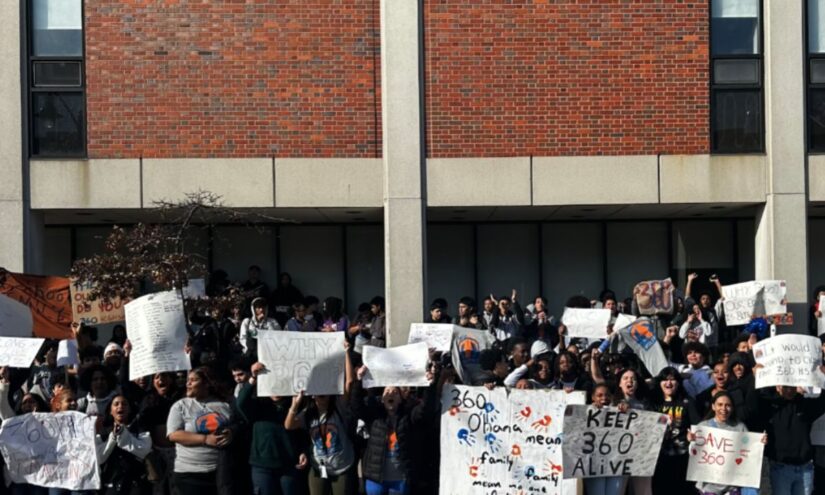Reflecting on the tenets that shape our educational practices is fundamental for …
Parents cite Brown in lawsuit over closure of RI school for English Learners
Jennifer Livingstone

The closure of a small high school in Rhode Island has sparked a noteworthy response: Spanish-speaking families have filed a federal class-action lawsuit against the Providence Public School District, Providence School Board, state Department of Education, and state education commissioner under the Equal Educational Opportunities Act of 1974. The plaintiffs argue that the closure of 360 High School violates the students’ and families’ right to an equal education by referencing Brown vs. Board of Education.
Typically, the legislation is used following a denial of guaranteed services. In this instance, the plaintiffs aim to save a school they believe addresses their requirements. Attorney Jennifer Wood, the director of the Rhode Island Center for Justice, emphasized that the law mandates schools to eliminate barriers for English learners and their parents, inspired by a Supreme Court ruling in 1973 known as Lau vs. Nichols, which derived from Brown and clarified that the absence of additional language classes infringes on the Civil Rights Act of 1964 and the 14th Amendment.
Referring to a historical evolution from Brown through Lau to the 1974 law, Wood highlighted that each has redefined the composition of public schools and the inclusivity approach significantly.
In February, the Providence district authorities announced that 360 would merge, leaving students but not teachers or administrators to be integrated into the Juanita Sanchez Educational Complex’s new Life Sciences Institute at the academic year’s end. The closure decision aimed to provide students access to specialized programs and opportunities.
Despite district leaders arguing that merging 360 would enhance students’ prospects, the school’s families and staff remained unconvinced. At the heart of their objection was the personalized community at 360, particularly valued for aiding English learners. Alumni, parents, teachers, and students mobilized to address the closure, voicing concerns over the decision’s repercussions.
Community members demonstrated their support for 360 through various advocacy actions, highlighting the school’s community perception compared to the district’s average.
As 360’s families opposed the closure, they shared their positive experiences with Wood, who believed their assertions aligned with the Equal Educational Opportunities Act’s principles. Subsequently, a formal complaint was filed against the school district and education authorities.
Wood’s motion for a preliminary injunction aims to halt 360’s closure until the legal case is resolved. While the district refrained from detailed comments on the lawsuit, the legal proceedings continue as Chief Judge John McConnell supervises an expedited discovery process.
In the face of potential legal challenges, the school closure’s fate remains uncertain. A decision post-school year could see a temporary halt to the closure, necessitating adjustments for staff and students if the case’s outcome impacts the closure process.
In the realm of education, the evolving legal landscape surrounding school closures brings forth challenges and uncertainties, affecting students, families, and educators directly.


